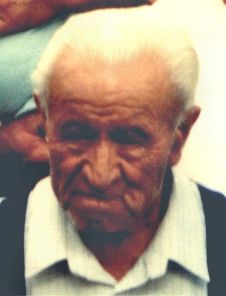
We thank his grandson Gerold Katzer for the following portrait and the photo:.
 Alfred
Katzer was born on the 5th of August 1911 in Glatz (Silesia). During his
eight year period at elementary school he often joined his father on the
stagecoach. This aroused Alfred's interest in the leather tack of the horses,
and so he learned the saddler's trade.
Alfred
Katzer was born on the 5th of August 1911 in Glatz (Silesia). During his
eight year period at elementary school he often joined his father on the
stagecoach. This aroused Alfred's interest in the leather tack of the horses,
and so he learned the saddler's trade.
At the age of 23 he ventured on self-employment as a saddler.
At the age of 28 he had to go to war, where he first had to fight at the
west front in France
and then he was sent to the east front in Russia. In 1943 he was wounded
in the Ukraine and taken to a military hospital in Coburg for recovery. There
he met his later wife, Maria, who was employed as an aide in that hospital.
In 1944 Alfred Katzer married his wife Maria in Glatz. Immedialtely after the
wedding he had to go to war again, though. In 1945 he was taken prisoner of
war in the Ukraine. There he had to persevere until October 1945. After his
discharge he was unable to return to his home, because it was occupied by Russian
soldiers. His entire family had been displaced.
In 1945, after the end of the war, Alfred Katzer travelled to Kuehweg near
Hermagor in Carinthia (Austria) - the native village of his wife Maria Katzer
where he started a new life. At first he had no contact to his family, later
however, he was able to locate his parents in Saxony. Alfred also found out
that his brother had died very early and his sister had settled in the Ruhr
area in Germany.
From then on Alfred Katzer worked as a factory worker in Hermagor and - together
with his wife - as a part-time farmer on his own farm.
In 1985 Alfred and Maria Katzer handed the farm over to their son Bruno. Alfred
Katzer died on June 29, 1987 after a long-lasting lung disease, which he had
borne with great patience.